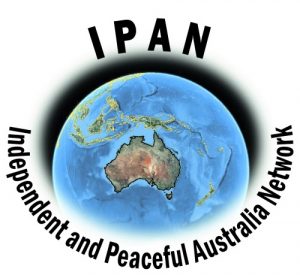
Figures released today by the Australian National Audit Office indicate that the Australian Defence Force has spent more than $10 billion on weapons and military equipment from the United States over the past four years.
Australian Strategic Policy Institute (ASPI) spokesperson Andrew Davies appears to accept the diversion of tax payers money to US arms manufacturers and states he expects this will continue and in fact double over the next decade. Yet In a submission to the parliamentary inquiry into the benefits and risks of a bipartisan Australian defence funding agreement he raises the question of return for investment: “What’s more, the benefits of defence spending must be compared with the opportunity cost that that spending imposes elsewhere on Australian society. To be clear, if $100 of additional defence spending delivers less benefit (in terms of reduced strategic risk) than, say, $100 spent on schools, it’s better to spend the money on schools. As circumstances change and the economic cycle evolves, the relative merit of alternative spending options will change.”
The report estimates around half of the money was spent supporting Australian Defence Force activity in Syria and Iraq in that four year period, activity that is questionably illegal under international law.
IPAN Spokesperson, Annette Brownlie, thinks that the Australian public need to consider whether that money will provide sound returns for the investment. “Could the money be better spent on meeting the needs of everyday Australians or in the interests of people suffering the impacts of war poverty and environmental consequences of climate change?“
The US Defence Security Cooperation Agency, which administers Major Arms Sales, argues the sales of the precision guided bombs to Australia would bolster America’s foreign policy and national security.
Ms Brownlie asks: “What about Australia’s national security which has been jeopardised as a result of our involvement in US led wars?”
“ Surely the security of Australians would be enhanced by policies demonstrating that conflicts must be resolved through diplomatic means not by bombs” said Ms Brownlie.
“The recent Foreign Policy White Paper reflects the doublespeak of this government giving lip service to diplomatic solutions but emphasising the ‘joined at the hip’ necessity of relying on US military and economic supremacy in the Pacific. IPAN will be releasing its response to the White Paper in the new year.”
IPAN, representing a broad cross section of the Australian community, considers that this spending must be debated in parliament in the national interest. “Let us hear from our political representatives as their leaders try to justify this gross misdirection of our tax dollars, said Ms Brownlie.
CONTACT: Annette Brownlie 0431 597 256
